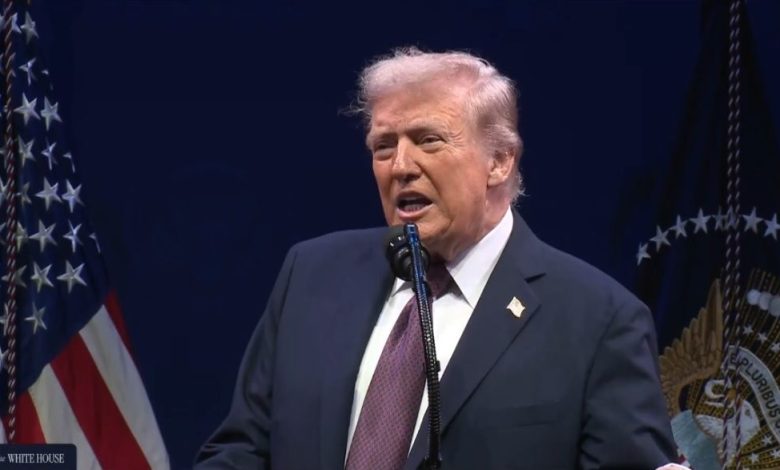Trump Says He’s Ready to Fund SNAP Amid Prolonged Government Shutdown
As the U.S. shutdown stretches beyond a month, Trump signals openness to using emergency funds to keep food aid flowing for 42 million Americans at risk of losing SNAP benefits.

U.S. President Donald Trump expressed his willingness to maintain funding for the Supplemental Nutrition Assistance Program (SNAP) just hours before it was set to be suspended due to the ongoing government shutdown, now lasting more than a month.
After more than four weeks of shutdown — which has left hundreds of thousands of federal employees without pay, disrupted air travel, and closed national parks — the impact is expected to reach roughly 42 million SNAP beneficiaries, as the federal government was scheduled to stop funding the program on Saturday.
Following a federal judge’s order on Friday requiring the government to use emergency funds to keep SNAP running, President Trump said he was open to that solution. On his Truth Social account, he wrote:“I will not allow Americans to starve just because the radical Democrats refuse to do the right thing and reopen the government.”
He added:“If we receive the proper legal guidance from the court, it would be my honor to secure the necessary funding for SNAP as soon as possible — just as I did for military and law enforcement salaries.”
According to Axios, it remains unclear whether Friday’s court ruling will be implemented quickly enough to ensure recipients receive their benefits on time.
Judge John James McConnell Jr. of Rhode Island ruled that the administration must fund SNAP during the shutdown and demanded a progress report by Monday. “There is no doubt or dispute that irreparable harm has already begun or will begin soon,” the judge said, referring to the fear and uncertainty families are facing over food assistance.
Earlier, House Speaker Mike Johnson, a Republican, warned:“Real people — real families, real children — will go hungry by the end of this weekend,” accusing Democrats of continuing “their political games in Washington.”
U.S. Agriculture Secretary Brooke Rollins stated that SNAP funding would run out after one month of the shutdown.
As the threat of halted food assistance looms, some Americans have begun organizing solidarity networks. Meanwhile, 25 states and Washington, D.C. have filed a lawsuit against the Trump administration over its decision to stop SNAP funding. The states are demanding that the federal government use the $6 billion emergency fund to cover the program, but the USDA has refused, arguing that the funds must be reserved for potential disasters. In a statement, the Department said funding had “dried up” and that assistance could fully stop by November.

Health Insurance
Also on Saturday, the government is expected to announce new health insurance costs for more than 24 million Americans covered under the federal Affordable Care Act (Obamacare). With government subsidies set to expire at the end of the year, prices are expected to rise sharply.
Support for Obamacare remains a key flashpoint in Congress between Republicans and Democrats, who have yet to agree on a new budget. Trump’s party is pushing to extend the current budget, while Democrats are seeking to maintain health coverage support for low-income families.
Although Republicans hold a majority in the Senate, ending the shutdown and passing a budget will require some Democratic votes.
While Trump managed to authorize military pay in October, it remains uncertain whether he can repeat the measure in November — potentially adding 1.3 million service members to the 1.4 million federal employees who have already gone without pay for a month.
Meanwhile, air travel disruptions continue due to a shortage of air traffic controllers, many of whom have chosen to take sick leave rather than work unpaid.
Vice President J.D. Vance warned of a looming disaster in the nation’s air travel system if the shutdown persists, especially with the busy Thanksgiving travel season approaching. He urged Democrats to provide the necessary support to restore government operations.
Trump on Friday reiterated his willingness to negotiate with Democrats — but only after the shutdown is lifted.

Economic Costs
According to a memo from the White House Council of Economic Advisers, the United States could lose about $15 billion in GDP each week the shutdown continues. A one-month shutdown could also raise unemployment by 43,000 and impact 1.9 million federal civilian workers, most of whom are either furloughed or working without pay — 80% of them based in the Washington, D.C. area.
The suspension of federal operations is estimated to cost $400 million per day.



